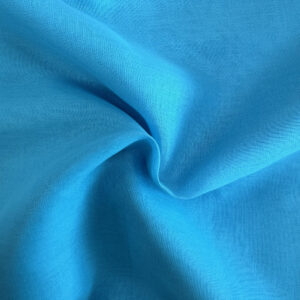
Sikh turbans, also known as dastaars, hold deep cultural and religious significance within the Sikh community. More than just a piece of cloth, the turban represents honor, faith, and equality, as well as the wearer’s commitment to Turban shop near me. Choosing the right material for a turban is essential for both comfort and presentation, especially since these turbans are often worn daily.
Traditional Materials Used for Sikh Turbans
- Cotton and Cotton Blends
Cotton is the most commonly used fabric for Sikh turbans due to its breathability, lightness, and comfort. Since many Sikhs wear their turbans for long periods, often during everyday activities or outdoor events, the fabric must allow airflow and not cause discomfort. Cotton is a natural choice, especially in warmer climates, because it helps wick away sweat and keeps the head cool.
- Fifty-Fifty Blends (Cotton-Polyester)
Some turbans are made with a blend of cotton and polyester to enhance the durability of the material while still maintaining some of the softness and comfort of cotton. The added polyester provides strength, reducing the wear and tear that comes with daily use. These blends are a practical choice for those seeking turbans that can withstand frequent use while remaining relatively low maintenance.
- Voile
Voile is a lightweight, sheer fabric, made from either 100% cotton or a blend of cotton and other fibers. This material has a soft, slightly transparent quality and is sometimes preferred for special occasions due to its elegant appearance. It’s thinner than standard cotton and gives the turban a refined, polished look, making it ideal for weddings, religious ceremonies, and other formal gatherings.
- Silk and Silk Blends
While less commonly used for everyday wear due to its delicate nature and high cost, silk is occasionally chosen for ceremonial or festive turbans. Silk turbans provide a luxurious sheen and feel, but they require more care. Often, silk is blended with more durable fabrics to make it more practical while still retaining the luxurious feel of the fabric.
- Rubia
Rubia is a premium fabric known for its softness and superior quality. It’s thicker than voile but still lighter than some other materials, offering a perfect balance of durability and comfort. The texture and weight of rubia make it a preferred material for Sikhs looking for something special yet durable enough for regular use.
The Role of Material in Turban Tying
The material chosen for a Sikh turban can also affect how easily it can be tied and how it maintains its shape throughout the day. Light, breathable fabrics like cotton and voile are often easier to manage, especially for beginners learning to tie turbans. Heavier or slicker fabrics like silk require more skill to secure properly, as they may slip or require extra adjustments during wear.
Symbolic and Practical Importance
The choice of Buy full voile material can also carry symbolic meaning. For example, a simple cotton turban may reflect humility and practicality, aligning with the Sikh principles of simplicity and equality. On the other hand, turbans made from finer materials like silk or rubia may be worn during special occasions to honor the significance of the event.
Additionally, the fabric quality and care put into the turban are expressions of respect for the Sikh faith. Sikhs view the turban as a crown, and the material reflects the dignity and pride associated with wearing it.
Conclusion
In Sikhism, the turban is not just a fashion accessory but a profound symbol of faith, identity, and spiritual discipline. The material used for Sikh turbans plays an essential role in both the practical experience of wearing the turban and the cultural or religious messages it conveys. Whether made from breathable cotton for daily wear or elegant silk for special occasions, the material chosen reflects a balance of comfort, tradition, and respect for the values that the turban represents







